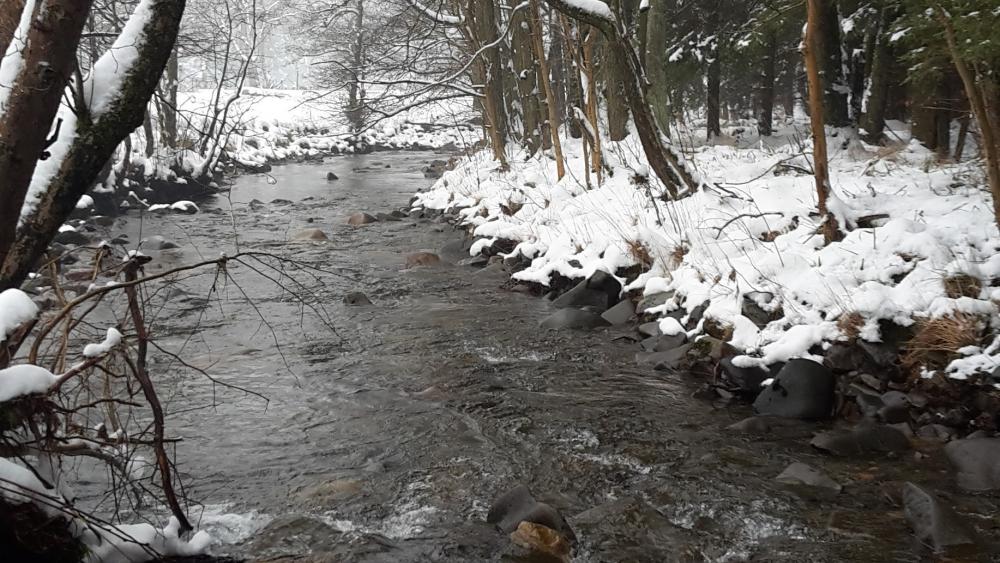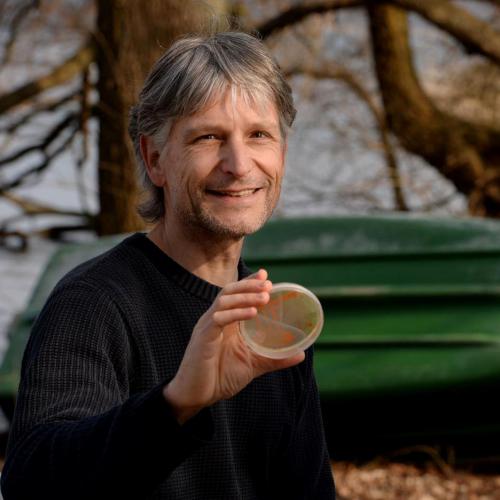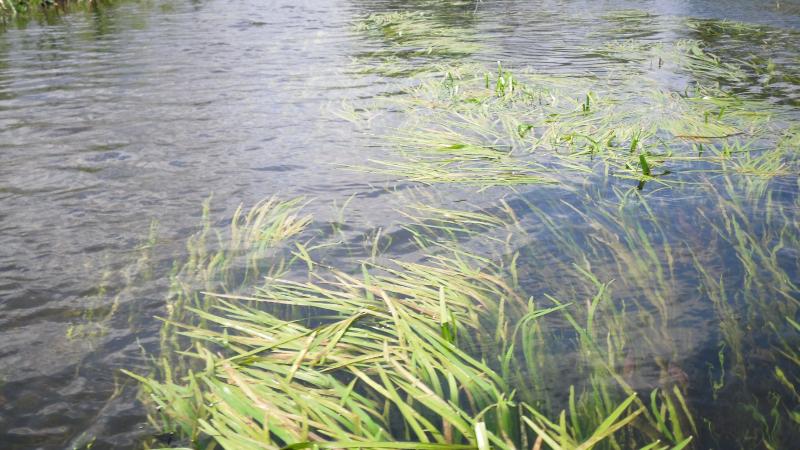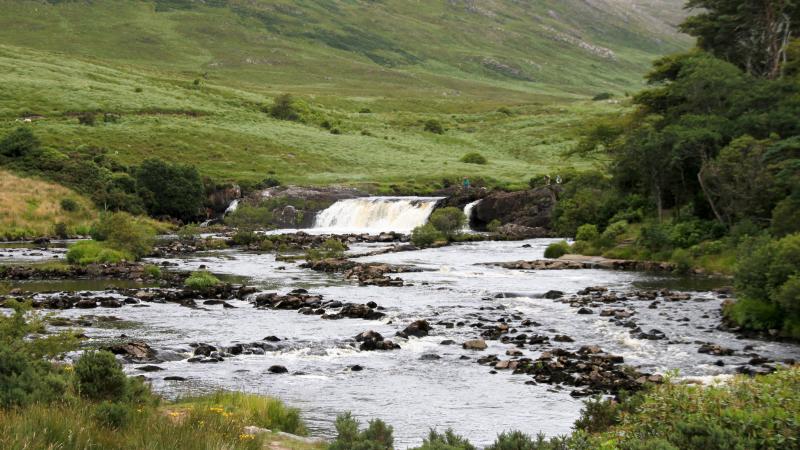
For the study, IGB researchers Mark Gessner, Hans-Peter-Grossart and Darren Gilling investigated watercourses in Germany and Portugal. | Photo: Darren Gilling
Large amounts of organic carbon are released into streams and rivers from the surrounding landscape, e.g. in the form of plant residues, which are either processed in the system or transported out of the system. “River ecosystems play a significant role in the global carbon cycle by regulating decomposition rates and transporting organic matter to the oceans,” said Scott Tiegs, professor at Oakland University in Michigan (USA), who led the study. “On the other hand, we have only a rudimentary understanding of how decomposition rates vary from river to river on a global scale and with the respective climatic zone.”
Photo: Hans-Peter Grossart
This is where the current study comes in: Unlike most previous studies on the carbon cycling in streams and rivers, the methodology was identical across all field sites. A simple, strictly standardised method was used, which enabled a large number of researchers worldwide to work together. Among them were Mark Gessner, Hans-Peter Grossart and Darren Gilling, who investigated eight streams and their banks in the temperate latitudes of Central Europe.
The results not only provide basic information on the functioning of river ecosystems and their riparian zones, but also new insights into their responses to global warming and other factors of climate change, as the turnover of carbon from plant residues strongly depends on microbial activity. This is determined not only by environmental factors, but also by the composition of microbial communities and, therefore, varies from location to location. Irrespective of temperature conditions, slow microbial turnover was observed at sites of all latitudes, while very high turnover rates were limited exclusively to lower latitudes. In the course of global warming, it is likely that microbial turnover will also be significantly accelerated at the higher latitudes.
The results were published open access in the journal > Science Advances.






